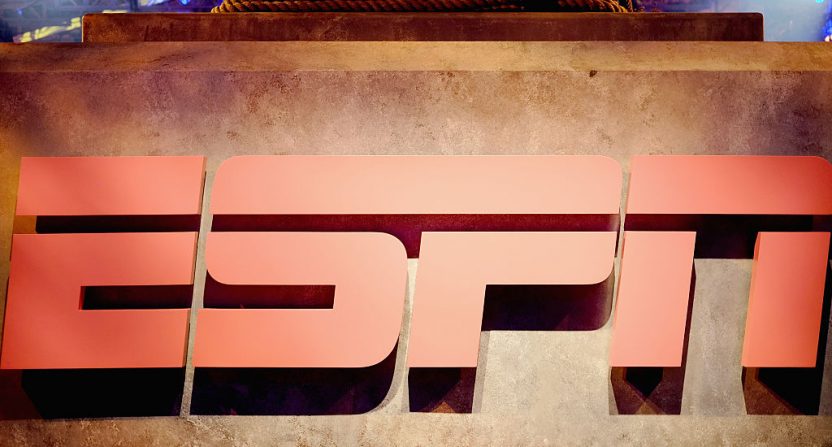As a brighter spotlight shines on systemic racism and racial inequality throughout the culture, media (CNN, for example) is undergoing increased scrutiny regarding hiring and staffing practices, both externally and internally.
ESPN is currently facing a lack of Black representation behind the camera and in executive positions, as Kevin Draper investigates in a feature for the New York Times. According to Draper’s reporting, many Black employees have raised the issue in meetings and conference calls during the past month, pointing out examples of treatment and promotions at the network that have prevented advancement.
Though the network has several Black employees in public-facing roles on television and writing for the website, that isn’t the case behind the scenes. ESPN does employ four Black executives at the senior level — Rob King, Kevin Merida, Dave Roberts, and Paul Richardson — each of whom believe they can help initiate more diversity at the ESPN offices in Bristol.
Beautifully said, @michaeleaves. Thank you for your bravery and candor. pic.twitter.com/gpo2Pf64Ci
— Mina Kimes (@minakimes) May 31, 2020
One incident that highlighted tensions in Bristol occurred during a college football conference call in which broadcaster Dave Lamont commented that Black employees were “venting.” Believing he was on mute, Lamont made the remark to his wife which was heard by everyone on the call.
The New York Post‘s Andrew Marchand reported that ESPN executives are considering dismissing Lamont. Though he admitted making a remark that offended many to management and said he apologized to everyone on the call in a statement to Marchand, it’s not clear as to whether or not Lamont addressed the matter directly to anyone.
Maria Taylor, who was interrupted by Lamont’s comment during the call, told Draper that the incident was “a slap in the face” that illuminated issues with the culture at ESPN.
Draper also spoke with former ESPN anchor Cari Champion, who left the network in January after seven years as an on-air host. (She will soon launch a talk show on VICE TV titled Disruptors, with another Black former ESPN personality, Jemele Hill. Hill also shares her experiences at the network within the NY Times piece.) Champion said “constant dismissals and borderline harassment” from producer Jill Fredrickson influenced her decision to leave ESPN.
And therein lies the rub. https://t.co/Ij0EiEUHHT
— Cari Champion (@CariChampion) July 13, 2020
Sources also told Draper of a network NBA coverage meeting in which producer Amina Hussein said she advised younger Black employees to leave the network if they wanted their careers to advance. Though Hussein was promoted to senior coordinating producer this month, Hill is among those who believe that someone who’s produced shows like Sunday NFL Countdown and NBA Countdown would have been promoted much higher by now if she was white.
The Times article delves into plenty more of the discussions ongoing at ESPN, including employees who say they were told indirectly to “tone down or skip” discussing race and sports on the air.
All I know is some of those Black folks at ESPN were warned not to retweet or @ me and privately told me so because of my “controversial” opinions in years past
— 𝐄𝐱𝐚𝐯𝐢𝐞𝐫 𝐏𝐨𝐩𝐞 (@exavierpope) July 13, 2020
ESPN president Jimmy Pitaro has pledged to make changes, including improved interviewing and hiring practices, developing more diverse leadership, and making sure all voices were included in meetings and decision-making at the network.
Yet until more changes are apparent, ESPN employees like Taylor, Elle Duncan, and Michael Eaves will continually meet with top executives about adding more people of color behind the scenes. Pitaro says he will ultimately be held accountable if improvements aren’t made during his tenure.







